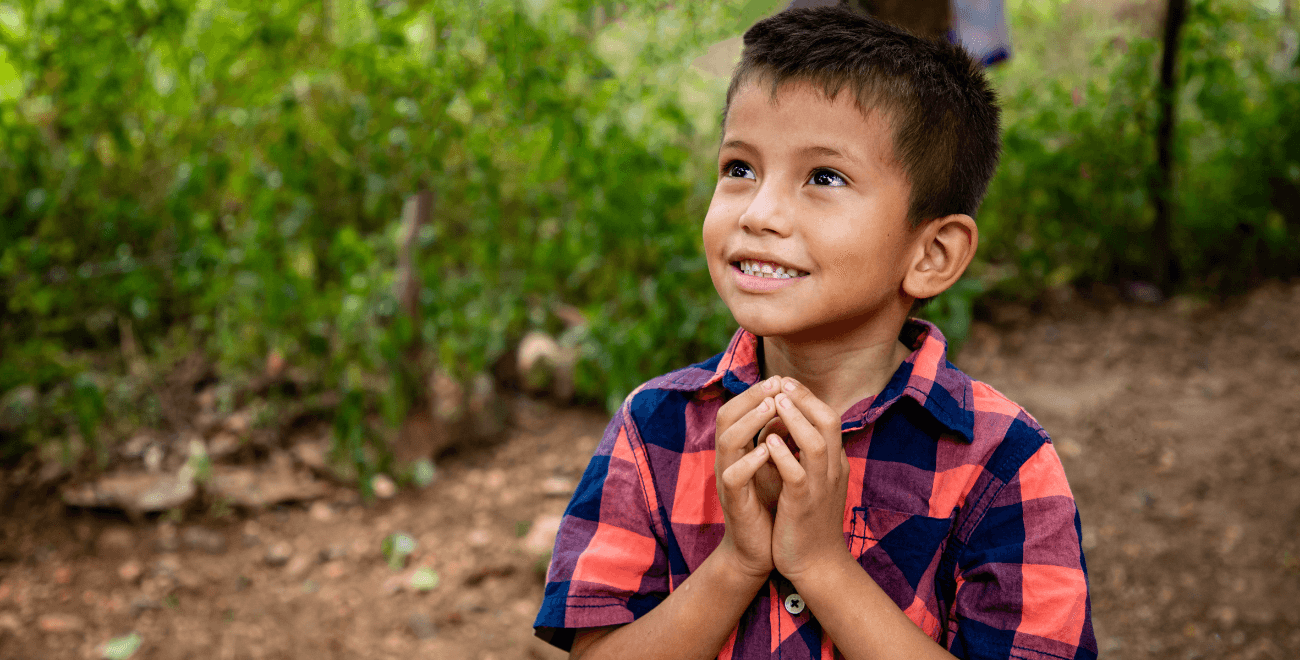Discover more
The Global Food Crisis and its Devastating Impact
The impact of the ongoing pandemic, conflict, climate change, soaring prices, and international tensions has taken their toll on global food security. We’ve seen first-hand the devastating effect on children living in poverty in the countries where we serve. And we pray for a world where no one is left behind.
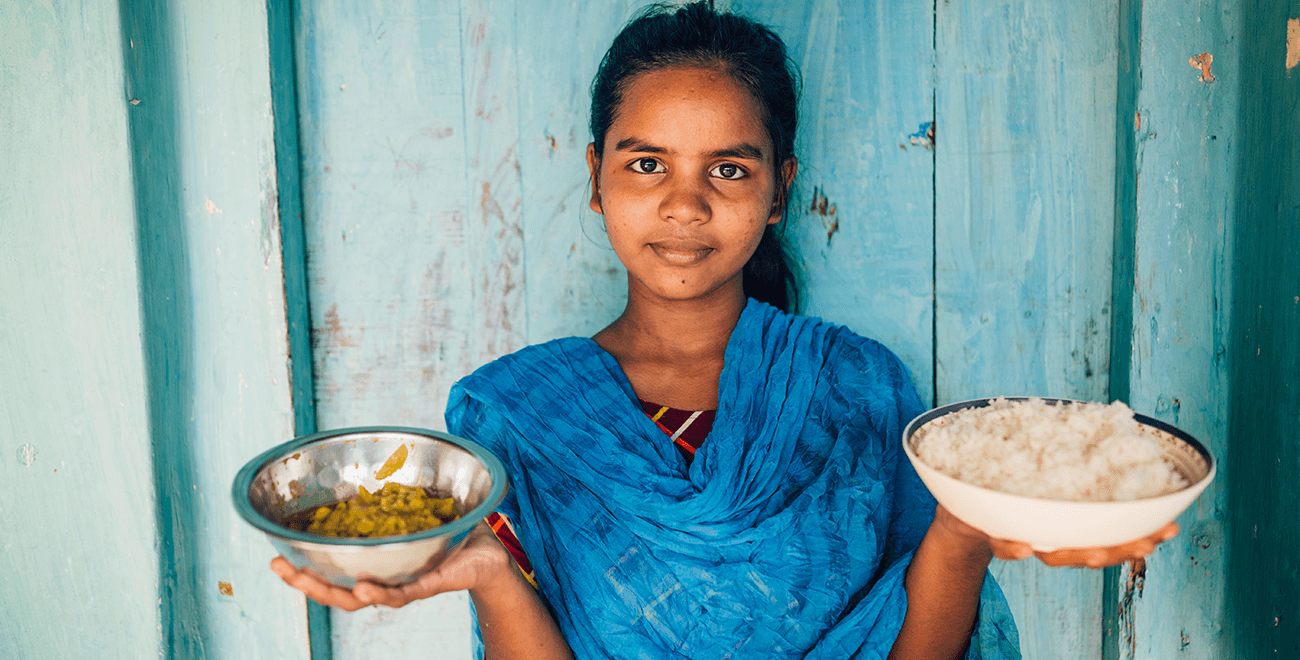
The Global Food Crisis
We’re in the middle of an unprecedented Global Food Crisis.
Almost 40% of the world’s population – 3.1 billion people – cannot afford a healthy diet. In just two years, the number of acutely food insecure people has risen from 135 million to 193 million, and this situation is likely to worsen during 2022.
Rising food prices during the COVID-19 pandemic caused the number of people unable to afford a healthy diet around the world to increase by 112 million (UN). In addition, the impact of conflict, climate and environmental change, and economic downturn have meant more people are facing food insecurity and hunger than ever before.
Read on to discover how we partner with local churches in three countries – one from each of the different regions where Compassion serves – to support the children and families in their communities.
Asia: Meeting the need in Sri Lanka
In late 2020, as Sri Lanka reeled from the pandemic’s impact, UNICEF reported that 36% of families were reducing the food they ate to survive. By April 2022, when the economic crisis hit, that number doubled to 70%.
Families like Akshan’s are making tough decisions to survive. With soaring prices and demand outstripping supply, an economic crisis grips Sri Lanka. Buying much-needed medicine, as well as food, has almost become impossible.
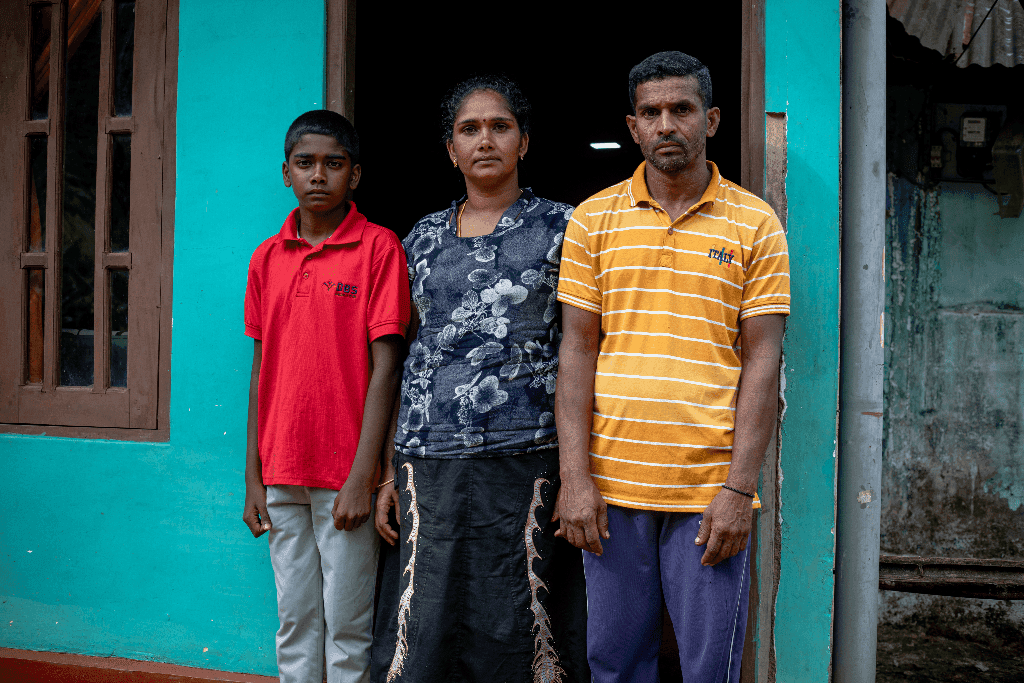
Rajan, Akshan’s father, works as a mason. His pay depends on how much work he can find. When he has steady work, he earns around 45,000 rupees (about £500) per month. But in recent times, the economic crisis gripping Sri Lanka has restricted his work, and now he only earns 20,000 – 30,000 rupees (about £220 – £330).
“It’s like one day if I buy chicken and one other item, the money for that day is spent—so I cannot buy anything else for the house. Then the next day, I must buy toothpaste or something for my family, and then we don’t have money for food,” says Rajan.
Compounding the family’s hardship, Rajan’s wife Chandradevi has been ill for many years. She’s unable to work. Akshan was delivered through Caesarean section, and his mother has experienced chronic pain ever since.
“The pain I feel sometimes is so bad, it’s hard to explain. It’s like there are knives inside my stomach,” says Chandradevi.
But there’s not enough money for medical tests to determine her pain’s source. The family simply can’t afford both healthcare and food.

Through the regular provision of food packages, Compassion is supporting Akshan’s family to meet their immediate needs.
“I know if I don’t have anything, I can just call the project staff, and they’ll always give me what I need. I can definitely say that I am alive, and I continue to live, only because of Compassion,” says Chandradevi.
However, across the country, millions of families face the same awful choices as Akshan’s family as the economy disintegrates and shortages of essential items like food and fuel take hold.
Donate to our Global Food Crisis appeal to support children and families in countries like Sri Lanka.
Soaring Food Prices
Beyond the economic stress in Sri Lanka, food prices are soaring in other countries where Compassion serves.
The cost of basic items has increased in the past year due to supply chain issues, high transport costs, the ongoing effects of COVID-19, conflict, and the growing frequency and intensity of weather extremes.
The war in Ukraine is intensifying the food crisis because Russia and Ukraine are responsible for supplying almost 30% of the world’s wheat and a significant percentage of global fertiliser.
Central America: Fighting Malnutrition in Honduras
As food prices climb, so does hunger and malnutrition in young children.
Eight-year-old Dana lives in a poor urban community in Honduras with her parents and four siblings.
“Cereal with milk for breakfast was a meal that we could not afford in our family—until my children enrolled at the Compassion project,” said Lilian, Dana’s mother.
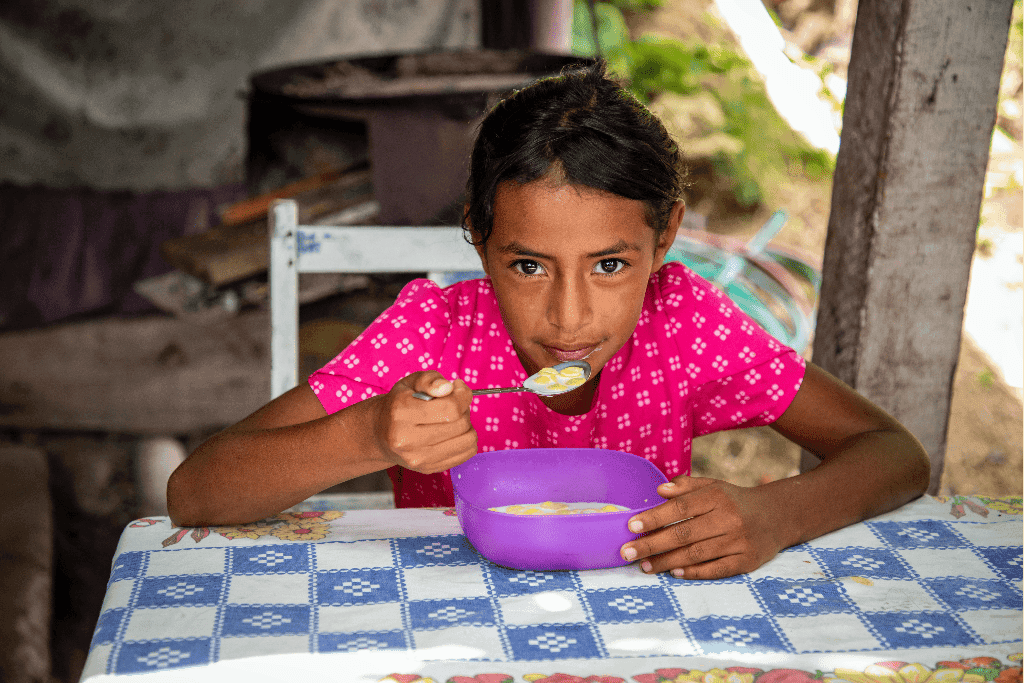
Putting food on the table for their five children has always been tough for Dana’s parents. But the challenge is growing. Their small fruit and vegetable stall at the local market has struggled because of the COVID-19 pandemic, and now high oil prices have severely impacted the food supply chain.
Like Dana’s family, more than 2.6 million people in Honduras are at risk of facing food insecurity. Among the most vulnerable are children who live in poverty.
During a regular medical check-up at Dana’s Compassion project last year, Dana was diagnosed with acute malnutrition – also known as wasting. According to UNICEF, children with wasting are too thin, and have weak immune systems, leaving them vulnerable to developmental delays, disease, and death.
Through timely intervention including nutritional supplements and regular food deliveries, Dana and her siblings overcame malnutrition and are now thriving.
“Food prices have spiked since the COVID-19 pandemic hit our community in 2020, and we have had good days and bad days regarding food,” said Lilian.
“If not for the Compassion project that has supported us with monthly food bags, I do not know where we’d be.”
Donate now and help families like Dana’s in Honduras and in other countries where we work.
How Compassion is Assisting Children and their Families
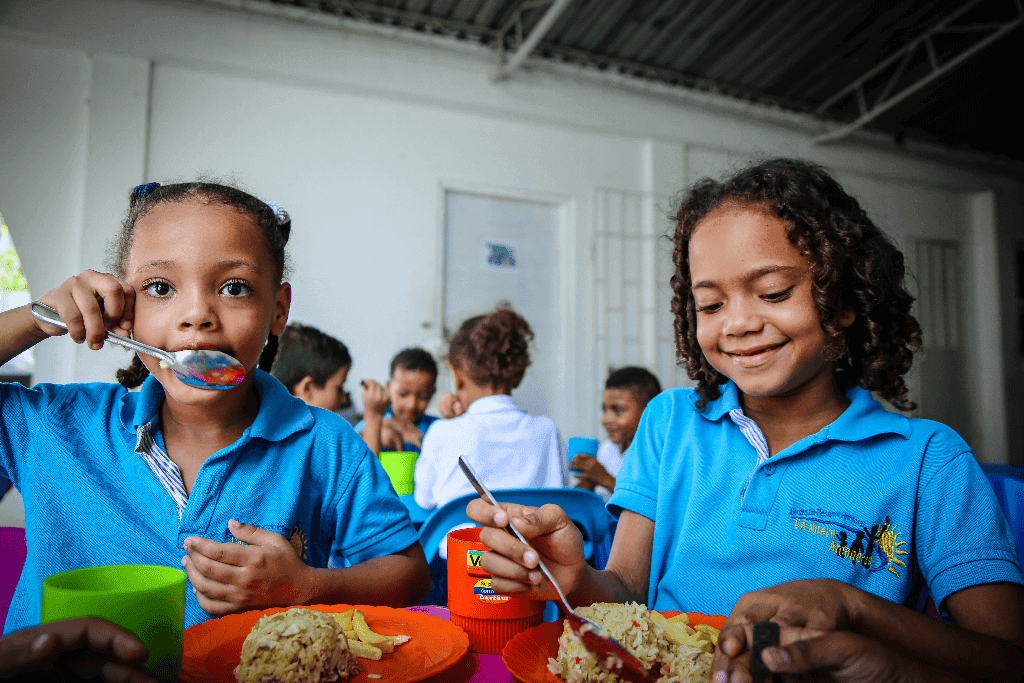
Compassion is partnering with local churches to provide immediate relief and long-term support.
Since the beginning of the pandemic, thousands of Compassion’s church partners have delivered more than 23 million food packs (full of essentials such as rice, beans, flour, or oil) to hungry families in their communities.
We believe the local church is best positioned to assist in this crisis because it has established decades of trust and relationships within the community. Our local partners are delivering supplies, including food, that are purchased locally to sustain local economies.
Mobile money transfers are being used where appropriate to send cash directly to families. It’s a secure, discrete, cost-effective, and dignified way to get aid to those who urgently need it.
Our local frontline church partners are also providing long-term food security through distributing seeds, fertiliser, livestock, and training on how to build and maintain home gardens and small-scale farms.
Africa: Protecting Farming Families in Uganda
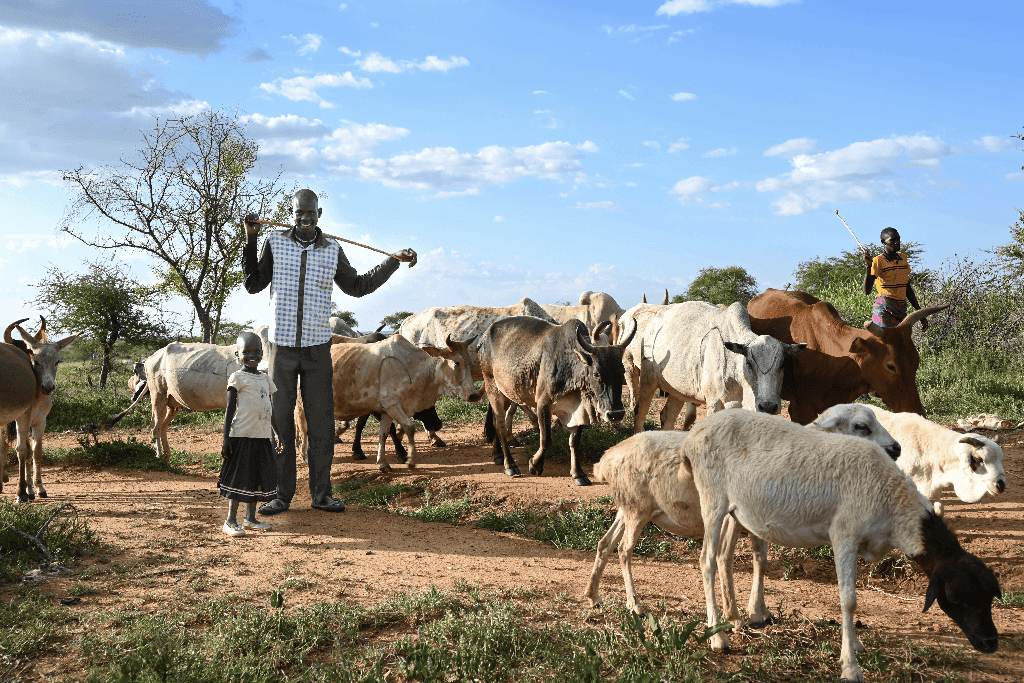
The Karamoja region in Uganda has become known for cattle raiders. These men raid villages with guns and steal the livestock. The government has been disarming them, but they continue to terrorise communities.
“In March this year, we heard for the first time these cattle raiders are not only taking cattle but also household items, and killing males in the family, so they don’t retaliate,” says Deborah, a staff member from one of our frontline church partners.
“The insecurity and inflation have been tough here, and hunger has intensified. Now, these raiders have made it a habit to raid and rob people, looking for food.”
Eli and his family were victims of these raiders. The robbery left them with little means to survive.
“Prices have shot up. I need to spend at least $5.30 (£4.80) on my family, but I cannot afford it. I am the breadwinner here, and everyone expects me to provide, but everything is expensive,” says Eli.

Eli was able to receive food from Compassion after the raid, as he did in previous times when his family was in need. He received 20kg of flour and 13kg of beans. This food was a great relief.
While times are dangerous and challenging, hope is not lost. Thanks to donations from across the world, and the care of our local church partners help is on the way.
Join us as we look to serve children and families in countries like Uganda.
“By the end of August, 48,310 Compassion- assisted children will each receive 56 kilograms of posho and more than 28 kilograms of beans that will last them a month,” says Joseph, the Programme Support Specialist in charge of Interventions for Compassion Uganda.
“We hope children can have at least two meals a day to improve their physical and mental wellbeing, and better their programme attendance and participation at the project due to food availability at home.”
While food relief is vital at this point, Compassion Uganda is also developing long-term solutions, such as irrigation networks so people can plant crops all year round.
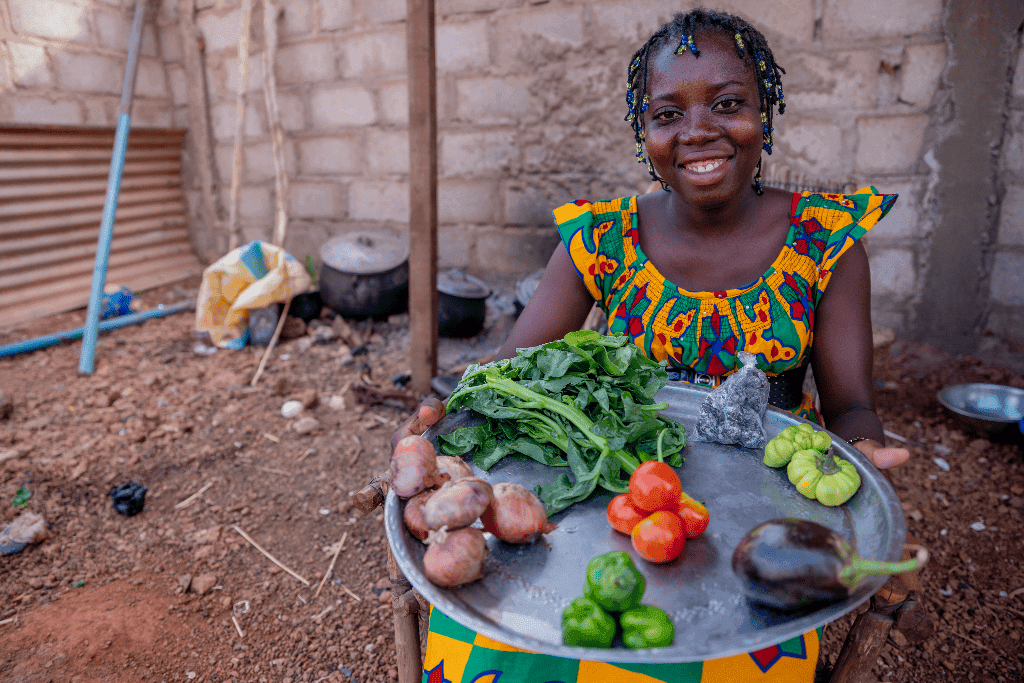
A Message to Our Supporters and Sponsors Who've Donated to the Global Food Crisis Appeal
We cannot thank you enough.
We wouldn’t be able to help as many children as we do without your faithful support at this time. Your partnership with our frontline church partners has often meant food on the table and a means for families to survive another day.
May God continue to work through your support to provide hope to children in need.
Thank you.
If you want to learn more about the impact of this Global Food Crisis, visit:
12 Powerful Photos Show How Food Prices Have Skyrocketed Around the World
Meet 3 Frontline Heroes Fighting Hunger During the Global Food Crisis
The Global Food Crisis and Your Sponsored Child: Your Questions Answered
Words by
Agnes Wilson
Share:
Share:
Pray with us
Join thousands of people praying to end poverty, take action through our appeals and activities, and be inspired by how God is changing lives.
Get a little Compassion in your inbox with our Prayer and Stories email.
Remember, you can unsubscribe at any time. Please see our Privacy Policy for more information.
